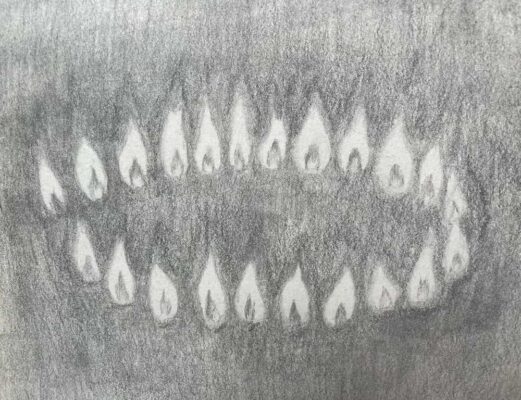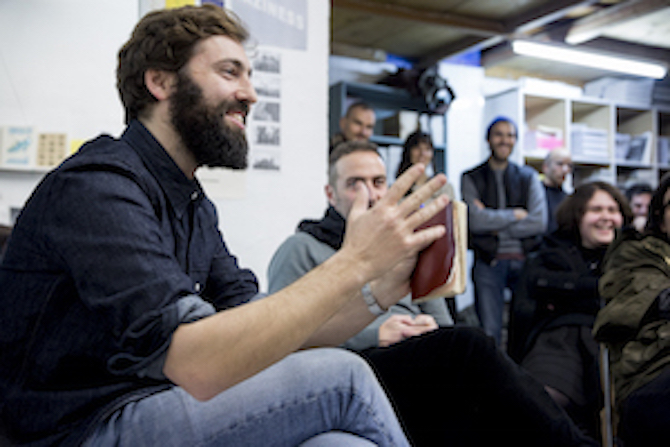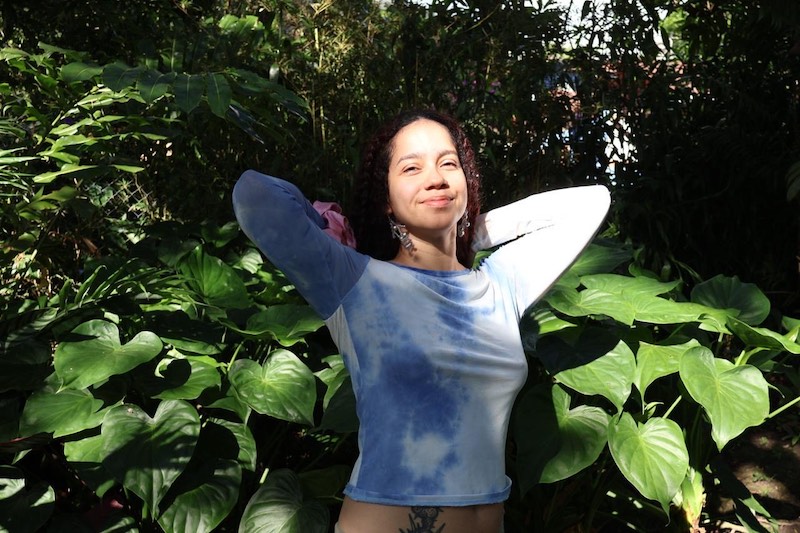Search
To search for an exact match, type the word or phrase you want in quotation marks.
A*DESK has been offering since 2002 contents about criticism and contemporary art. A*DESK has become consolidated thanks to all those who have believed in the project, all those who have followed us, debating, participating and collaborating. Many people have collaborated with A*DESK, and continue to do so. Their efforts, knowledge and belief in the project are what make it grow internationally. At A*DESK we have also generated work for over one hundred professionals in culture, from small collaborations with reviews and classes, to more prolonged and intense collaborations.
At A*DESK we believe in the need for free and universal access to culture and knowledge. We want to carry on being independent, remaining open to more ideas and opinions. If you believe in A*DESK, we need your backing to be able to continue. You can now participate in the project by supporting it. You can choose how much you want to contribute to the project.
You can decide how much you want to bring to the project.

We try to survive in an era in which the possibility of alternative futures has been practically eradicated. These days, in which the memory of destruction seems almost inevitable, we yearn for and rehearse new ways to find ourselves by seeking out spaces for individual and collective enthusiasm.
We urgently need common configurations of political, social, and cultural enthusiasm. We need to bring forth new forms of community, coexistence, and articulation that overcome the old structures that no longer support life.
In a world that demands accountability for every pause, act of tenderness, or repose, we ask ourselves:
What does it mean today to sustain joy without it being an excuse for indifference?
What happens if, in the current political climate, we bet on hope?
What if we insist on affection and the right to imagine without the guilt of the impossible?
In TheIllness of Our Time, Panamanian philosopher and poet Victoria Alegría explores how freedom has been absorbed by marketplace logic, reduced to brand choice, content creation, or the myth of “making a living from what you love.” In her text, she argues how disobedience could be the first true gesture of freedom and wonders how to reclaim time, boredom, and silence, and what happens when we stop producing and begin to ask ourselves more complex questions.
Why don’t we ask the complicated and uncomfortable questions? Why don’t we face each other and practice dialogue and listening as our only and last resort?
In 🌀 A conversaction with Valentina Desideri about the Utopian Present, we discuss how artistic practices might resist the dominant grammar of linear time, control, and inevitability. We are committed to utopia as a practice that occurs in the present, and to magic, intuition, and generosity as tools to move from self-help to collective ethics, from control to resonance, from individual creation to collective imagination.
How can we dismantle the myth of the ego and embrace a more abundant, detached premise?
In Over and Out: Dembow, Disobedience and Afro-Descendant Future Technologies, Dominican curator Luis Graham Castillo argues that dembow is more than just music, it is also a micropolitics, a vibratory archive of survival and invention. From broken loud speakers on street corners, dembow evokes Black Caribbean knowledge systems rooted in joy, trance, noise, contradiction, and community. Dembow doesn’t ask to be understood, it demands to be danced.
What if the future doesn’t need any translation, only rhythm?
For her part, Guatemalan poet Maya K’iche’ Kaqchikel Rosa Chávez speaks to us from a place of “we,” not to universalize the experience but to recover a sense of coexistence. In Urgent Times, Slow Rhythms as Experiments to Ritualize Hope, she focuses on sacred pauses as acts of collective resistance that help move us and help us find the imagination and persistence that bodies of water give us for the construction of free presents and futures. Slow rhythms as experiments to ritualize hope.
How do we respond to beings that are neither material nor human?
This series of texts is an exploration and an invitation to consider other ways of doing, feeling, and being. It connects diverse narratives, including stories against inertia, against exhaustion, against the seductive lie that there is no alternative. Without claiming definitive answers, they insist on questions, on the contours of what has not yet taken shape. They invite us to immerse ourselves in the pride of the unattainable and to evoke possible technologies of hope, not as an escape but as strategies for inhabiting the present with greater fullness and lucidity, for perceiving and cultivating latent possibilities in the here and now.
This is collective alchemy, harnessing the power of shared feeling, fostering new ecologies of thought, and utilizing languages and methodologies that break the cycle of repetition, driven by a stubbornness against resignation and the desire to disobey what is possible by going beyond its limits.
(Featured image: W/T by Libertad Rojo)

Juan Canela is chief curator is at the Museo de Arte Contemporáneo de Panamá. He works with artists and other people. He understands curatorial practice as a practice in which ideas, concepts and contents come into play, but also working structures, rhythms, models and ways of life. If it seems that there is no possible future, perhaps from here we can close our eyes and intuit one.

Libertad Rojo (Panama, 1992) is a Panamanian artist interested in the mystical and the communitarian. She is a founding member of the art collective Nuestra (2019), with whom she has developed a working methodology. Her work explores futures, desire and transformation from a poetic and experimental point of view. She has participated in exhibitions such as TrópicoGráficoMágico (2022) and Arcanos Cercanos (2024).
"A desk is a dangerous place from which to watch the world" (John Le Carré)